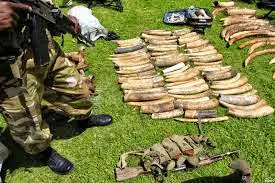BEIJING, Feb. 7 (Xinhua) -- Radar was used to detect unauthorized basement construction in Beijing as the city gets tough on the potentially dangerous practice.
The crackdown comes after a lawmaker built a basement in his courtyard that caused neighboring houses to collapse, local authorities said Friday.
Radar detection has been employed to monitor whether there are any hollowed areas under roads or houses.
According to the office in Xicheng District responsible for the crackdown, law enforcement can use radar to check renovated houses.
If any unauthorized basements are found, the owners will be ordered to fill in the basements or holes immediately, said Song Jiale, an official with the district government.
He said property ownership certificates will be granted after houses pass the check.
Previously, Li Baojun, a lawmaker from east China's Xuzhou City, Jiangsu Province, had built a 18-meter-deep basement in his courtyard in Xicheng District without permission, which caved in and caused the road and surrounding buildings to collapse on Jan. 24.
The incident has revealed the city's rampant illegal underground construction and caused a stir in the country.
xinhuanet.com
7/2/15
--
The crackdown comes after a lawmaker built a basement in his courtyard that caused neighboring houses to collapse, local authorities said Friday.
Radar detection has been employed to monitor whether there are any hollowed areas under roads or houses.
According to the office in Xicheng District responsible for the crackdown, law enforcement can use radar to check renovated houses.
If any unauthorized basements are found, the owners will be ordered to fill in the basements or holes immediately, said Song Jiale, an official with the district government.
He said property ownership certificates will be granted after houses pass the check.
Previously, Li Baojun, a lawmaker from east China's Xuzhou City, Jiangsu Province, had built a 18-meter-deep basement in his courtyard in Xicheng District without permission, which caved in and caused the road and surrounding buildings to collapse on Jan. 24.
The incident has revealed the city's rampant illegal underground construction and caused a stir in the country.
xinhuanet.com
7/2/15
--















 GR
GR FR
FR DE
DE ES
ES IT
IT RU
RU EU
EU